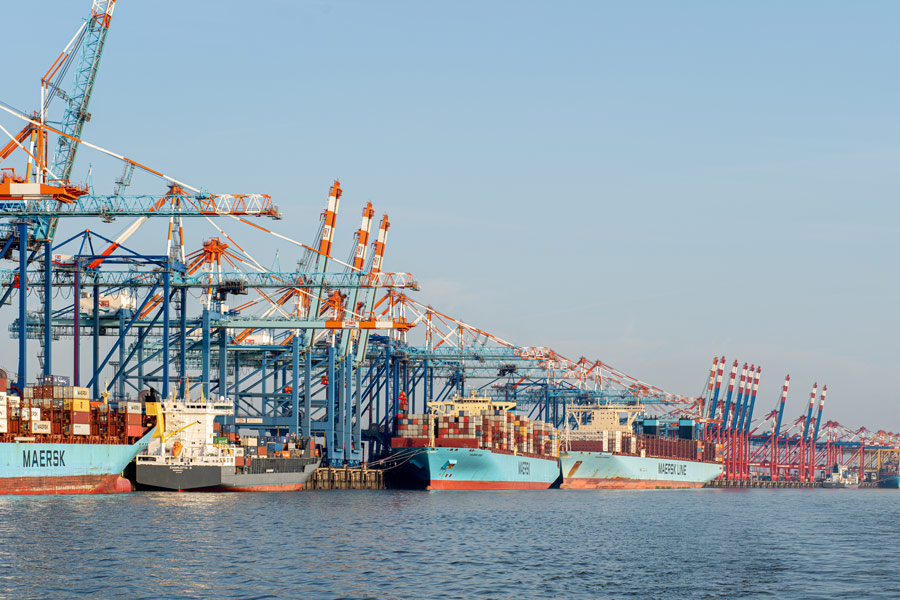


Maersk said it may have to resort to a "disconnect" strategy this week to connect transshipment ports because of increased freight congestion in East Asia and Africa.
Maersk warned customers that it had noticed congestion at the Mombasa gateway in Kenya due to "higher than expected yard density" and "equipment challenges."
The report explains that these factors lead to delays in the docking and departure of ships.
According to the eeSea database, the port of Mombasa has 11 vessels docked and 7 vessels waiting to dock. The nearby port of Dar es Salaam reported nine ships at port and 20 ships waiting to berth.
Maersk also said its liners from the Far East were experiencing delays in arriving at ports due to long waiting times for ships in Shanghai, Ningbo and Singapore.
According to eeSea, the Shanghai port has 59 vessels with 19 vessels waiting to berth, while the ports of Ningbo and Singapore both have 49 vessels with 29 and 12 vessels waiting to berth.
As a result of these challenges, the Danish airline said some berths, sailing and cut-off details on its Mashariki and Mawingu routes will likely change this week.
Its Mashariki route calls at Shanghai - Ningbo - Nansha - Singapore - Tanjong Parapas - Mombasa, while the Mawingu Express route calls at Jawaharlal Nehru Port - Mundra - Port Qasim - Salalai - Mombasa, then returns to Jawaharlal Nehru Port via Salalai and Pipavaf.
"Vessels on our route, which were scheduled to arrive on Thursday, have now been delayed to berth on Friday and the arrival time is expected to be further adjusted due to the extended waiting time, which may lead to delays in the unloading of imported cargoes," the company said.
The company explained that when "it is not possible to accommodate all containers" to meet the connections of transshipment ports, it may resort to "unexpected cutoff of transport" measures.
"Please be patient when this happens and we will work to prioritise the next available vessel for shipment," the company asked customers. The company has pledged to work around the clock to restore normal operations.
Peter Sand, Principal Analyst at Xeneta, explains: "One of the strategies carriers are using to mitigate the impact of longer sailing distances [due to the Suez Canal diversion] is to increase the use of intra-regional transshipment services in Europe and Asia.
"These good intentions have had the unintended consequence of causing severe port congestion, and Singapore - arguably the world's most important transshipment hub - is in the eye of this Marine supply chain storm."
He noted that port congestion in Singapore is "on the rise again", meaning that carriers will continue to see the neighbouring ports of Tanjong Parapas and Port Klang as "obvious alternatives".
Tanjong Parapas is the central hub of the new Gemini partner network.
Mr Sander warned that the two routes from Shanghai to Singapore and from Shanghai to Tanjong Parapas "have exchanged prices three times since July 1 to determine which route is more expensive", and predicted that "the volatile relationship between the two routes is likely to continue".
"If shippers want to take advantage of the carrier's strategy of increasing the use of Tanjong Palapas port, they will have to pay extra for the privilege, so freight rates will go up," he explained.
Meanwhile, a strike by transport workers in Bangladesh means Chittagong is also facing congestion. The eeSea database reported 11 vessels at anchor in the morning, with 13 vessels waiting to berth. Colombo, where most of Bangladesh's cargo is transshipped, currently has 10 vessels docked and 11 vessels waiting to dock.
The strike ended on Friday, so congestion in Chittagong may start to ease, but delays persist as the port is working to clear the backlog.





